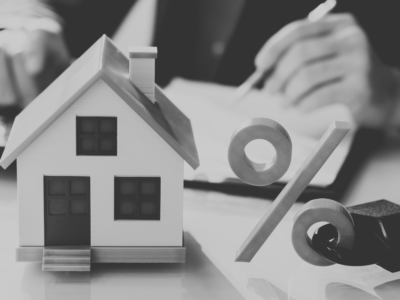Until very recently it seemed fanciful to talk about the UK economy going back into recession.
We have, after all, just had the biggest downturn since 1921 and, unlike London buses, recessions tend not to come along in twos.
There have only been three in the past 2 years, and five in the past 50.
As for the question of how the economy, and households, would cope with the biggest drop in real incomes (after tax and inflation) for decades, the consensus was that they would dip into the £200 billion-plus of additional savings built up during the pandemic, be encouraged by a strong labour market and low unemployment and be reassured that the squeeze will be a temporary one.
Now, however, the dam appears to have broken.
UK consumer confidence, which has been monitored by the market intelligence firm GfK since the 1970s, has slumped to within one point of its lowest ever level, which was in July 2008.
That’s right; consumers are gloomier now than they were in the 1970s, when inflation rose to nearly 27%, or in the 1980s, when unemployment rose well above three million.
The drop in confidence – hugely impacted by the further surge in energy prices as a result of the Russian invasion of Ukraine – looks to be the straw that broke the camels’ back.
The Bank of England does not lightly predict a recession.
Its last forecast, in February, had the economy growing modestly next year, by 1.25 per cent and inflation peaking at 7% this spring, before dropping sharply.
The war has changed that.
It is not predicting a big recession, but it does now think that the economy will be broadly stagnant for the next 2-3 years, that unemployment will go up, and that the economy will shrink by 0.25% next year, a shadow of its slump in 2020 but a second down year, nonetheless.
The gloom appears to be catching.
Though its expects the economy to grow marginally next year, the National Institute of Economic and Social Research, Britain’s oldest economic think tank, predicts that in the second half of this year, the UK will meet the standard definition of recession; two consecutive quarters of falling gross domestic product (GDP).
What will this mean for housing?
Though most forecasters do not expect a recession soon, these things can be contagious, and the challenge for those who are more optimistic is to demonstrate that the economy can grow through the squeeze.
As for housing, the Bank thinks the housing industry will get caught up in the general downturn, predicting a 1.75% drop in housing investment next year, broadly equivalent to new housing supply.
In February it predicted 3.25% growth.
There are some straws in the wind in the latest Royal Institution of Chartered Surveyors (RICS) residential market survey, with survey contributors said to be “preparing themselves for some market adjustments given the recent rate rise and the pressure on household budgets”.
Another new economic forecast, from the EY Item Club using the Treasury’s model of the economy, sees house price inflation dropping to 5% in coming months, a view I share.
After that, according to their forecast, house price inflation will subside to a 2% or 3% average.
None of that sounds particularly bad for the housing market, which has developed new powers of resilience since the pandemic struck.
Whether it can maintain that resilience depends, in large part, on whether this year of high inflation is a one-off, or the shape of things to come.
Most forecasters think that inflation will subside and that in a year’s time it will be well on the way down.
Interest rates will be higher, but not high enough to break out of the pattern of low rates that has been the norm since he financial crisis well over a decade ago.
The question is whether it can be achieved.
Former members of the Bank’s monetary policy committee (MPC) told a House of Commons committee this week that further significant rate rises and a recession could be needed to bring inflation down from its expected peak of 10% later this year.
Charles Goodhart, a founder member of the MPC, said the chances of a soft landing for the economy were less than 50-50.
The housing market has been resilient. But that resilience is set to be tested.






















Comments